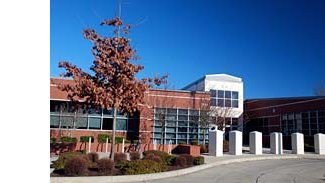- Celebrate Everyday Heroes; Support Whole Community Preparedness-
SEATTLE—National Emergency Medical Services Week brings together local communities and medical personnel to publicize safety and honor the dedication of those who provide the day-to-day life saving of emergency medicine’s “front line.” Observances run 15-21 May, with 18 May set aside as Emergency Medical Services for Children (EMSC) Day.
This year’s theme is Everyday Heroes, and according to FEMA Regional Administrator Ken Murphy, it’s all about celebrating EMS providers—first responders, hospitals, emergency physicians and public health providers, and engaging the Whole Community in reducing risk and saving lives.
“Our nation’s EMS providers do an incredible job, often risking their own lives to save ours. But they can’t do it all alone. National EMS Week offers an opportunity to celebrate this nation’s first responders, while sounding a clarion call for all of us to help them help us,” said Murphy.
“Planning for disasters means that we must plan for the Whole Community, including people of different ages and those with access and functional needs. It means planning for children, planning for the elderly, and planning for families without access to personal transportation. It means meeting our first responders more than half way when the chips are down.”
Tips to help be better prepared for emergencies, and enhance access to help during disasters include:
• Check on your access to 9-1-1. Some areas may not have 9-1-1.
Some have E-9-1-1 where an address is automatically stored in a data base.
Know what is available where you live and work.
• Build a “72 hour Disaster Kit” make a disaster plan, and keep a well-stocked
First Aid Kit.
• Make a list of emergency phone numbers. Write down the numbers you need in
your disaster plan and display them near all telephones in the house.
• Make sure your house number is visible from the street. Make it easier for
police, fire officials or emergency medical personnel to find your house.
Put large house numbers in a highly visible area. Make sure the numbers are
well-lit and can be seen at night.
• Keep a clear and up-to-date record of immunizations. This can help doctors
do a better job of diagnosing problems in an emergency.
• Write down medical conditions, medications and dosages. Being prepared in
advance helps assure proper treatment and prevent drug interactions.
• Make a list of allergies and reactions, and consider medical I.D. bracelets
or tags.
• Take first-aid classes. A basic class will teach CPR and proper ways to
treat burns, wrap sprains, apply splints, and perform the Heimlich maneuver.
FEMA’s Resolve to be Ready in 2011 campaign promotes Whole Community involvement in disaster preparedness. “Become involved in programs that strengthen your community’s disaster resilience. Investigate training and volunteer opportunities available through the American Red Cross, Citizen Corps or Community Emergency Response Teams,” continued Murphy. “No matter how busy or hectic our daily routine, we all need to take the time to take positive action to prepare ourselves, our loved ones and our communities in the event of severe weather, earthquake—or any other major disaster.”
Resolve to be Ready in 2011 is led by FEMA’s Ready Campaign in partnership with Citizen Corps and The Advertising Council. Individuals with medical skills who would like to volunteer in a disaster should see the Medical Reserve Corps Program webpage at www.medicalreservecorps.gov. For more information on National EMS Week observances, visit: http://www.acep.org/emsweek/ . For more information on the Ready Campaign and Citizen Corps, visit www.fema.gov, Ready.gov and CitizenCorps.gov.
Follow FEMA online at www.twitter.com/fema, www.facebook.com/fema, and www.youtube.com/fema. Follow Administrator Craig Fugate's activities at www.twitter.com/craigatfema. Social media links are provided for reference only. FEMA does not endorse non-government websites, companies or applications.
FEMA's mission is to support our citizens and first responders to ensure that as a nation we work together to build, sustain, and improve our capability to prepare for, protect against, respond to, recover from, and mitigate all hazards.
Wednesday, May 11, 2011
Subscribe to:
Post Comments (Atom)







No comments:
Post a Comment